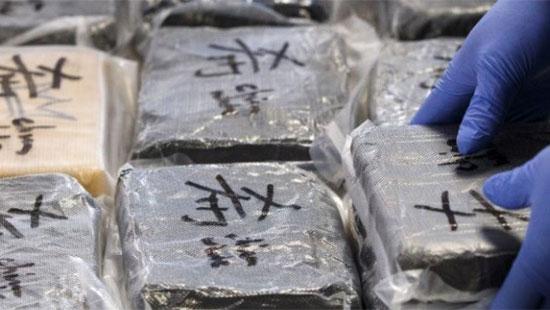12 Jun 2024 - {{hitsCtrl.values.hits}}
 The Maldives is alleged to be grappling with a dire new menace: the infiltration of the lethal synthetic opioid "China White" or fentanyl-laced drugs. This highly potent substance, exceeding 900 times the strength of morphine, is leaving a trail of devastation and death in its wake.
The Maldives is alleged to be grappling with a dire new menace: the infiltration of the lethal synthetic opioid "China White" or fentanyl-laced drugs. This highly potent substance, exceeding 900 times the strength of morphine, is leaving a trail of devastation and death in its wake.
The genesis of this crisis can be traced back to alleged China's alarming subsidies for the production and export of these illicit narcotics. Recent fatalities and hospitalizations have sounded a stark alarm regarding the Maldives' unpreparedness to confront this emergency. Lifeless bodies discovered in vacant residences likely represent accidental overdoses stemming from underestimations of fentanyl's extraordinary potency. Healthcare providers report treating patients who have confessed to using China White, raising fears of further casualties without prompt action.
Maldivian authorities find themselves ill-equipped, lacking even rudimentary testing capabilities to detect fentanyl in confiscated drugs. Insights from recovering addicts recently alerted the National Drug Agency to this new synthetic threat, just a week ago. Scrambling to react, they are now procuring test kits internationally to assess the crisis's true magnitude through extensive screening. Nevertheless, the heart of the issue lies far beyond Maldivian borders—in the systematic subsidization of fentanyl precursor chemicals by the Chinese government. A shocking U.S. congressional report has unveiled Beijing's central role in exacerbating this epidemic through tax incentives and financial rewards for Chinese companies manufacturing these lethal substances, provided they are exported overseas.
The report's revelations are damning—China subsidizes the export of substances illegal under both U.S. and Chinese law, including fentanyl analogues and precursors devoid of legitimate use globally. Specific chemicals like NPP and ANPP, pivotal ingredients for Mexican drug cartels producing fentanyl, remain eligible for rebates as high as 13%. These subsidies create a perverse profit motive, encouraging Chinese firms to scale up production for the lucrative international drug market. As one U.S. official bluntly remarked, this suggests Beijing desires increased fentanyl inflow into America, causing "chaos and devastation." The repercussions for smaller nations like the Maldives are equally dire.
By fostering the fentanyl crisis via exporter subsidies, China may be employing a cynical geopolitical strategy—using narcotics to weaken and exploit other societies. A nation ravaged by drugs, descending into chaos and addiction, becomes considerably more susceptible to Chinese economic, political, and military coercion. With public health systems overwhelmed, economies eroded by drug-related crime, and social unrest seeded through overdose deaths, China could exploit such destabilized nations.
They would lack the resources and societal coherence to effectively counter China's debt-trap diplomacy, corporate espionage, or military maneuvers. Thus, by deliberately saturating the global market with inexpensive, potent synthetic opioids, Beijing nurtures fertile ground to extend its insidious influence over compromised states debilitated by their populace's drug dependencies—a brutal, contemporary opiate of the masses facilitating Chinese ambitions.
China refutes culpability, shifting blame onto America's internal demand issues. Nonetheless, its actions speak louder than hollow promises of cracking down on smugglers. Despite commitments of cooperation with the U.S., including a new counter-narcotics working group, the subsidies persist as of April per the congressional findings. The Maldives, like the rest of the world, finds itself at the mercy of China's fentanyl export apparatus. Its under-equipped healthcare system is woefully unprepared to handle complications from fentanyl overdoses or deliver adequate addiction treatment for these lethal synthetics. Lacking tools like naloxone to reverse overdoses, even trained professionals struggle to respond effectively.
This national nightmare offers a glimpse into the harrowing human toll of China's calculated policies. Each casualty, each shattered life in the Maldives lays bare Beijing's callous disregard for human life beyond its borders in pursuit of economic gains and strategic disruptions. The global community can no longer ignore as China's fentanyl subsidies fuel overdose crises from America to the Indian Ocean shores. International pressure and sanctions must be levied to dismantle these incentives and sever the supply lines poisoning nations like the Maldives. For too long, the Maldives have been seen as an idyllic paradise. Yet, the menacing specter of China White now looms over these very islands, serving as a stark reminder that no corner of the world is immune from the greed-driven fentanyl scourge. Beijing's subsidized export of death and misery must cease before countless more lives are sacrificed on the altar of the Chinese Communist Party's ambitions.
24 Dec 2024 14 minute ago
24 Dec 2024 36 minute ago
24 Dec 2024 2 hours ago
24 Dec 2024 3 hours ago
24 Dec 2024 3 hours ago